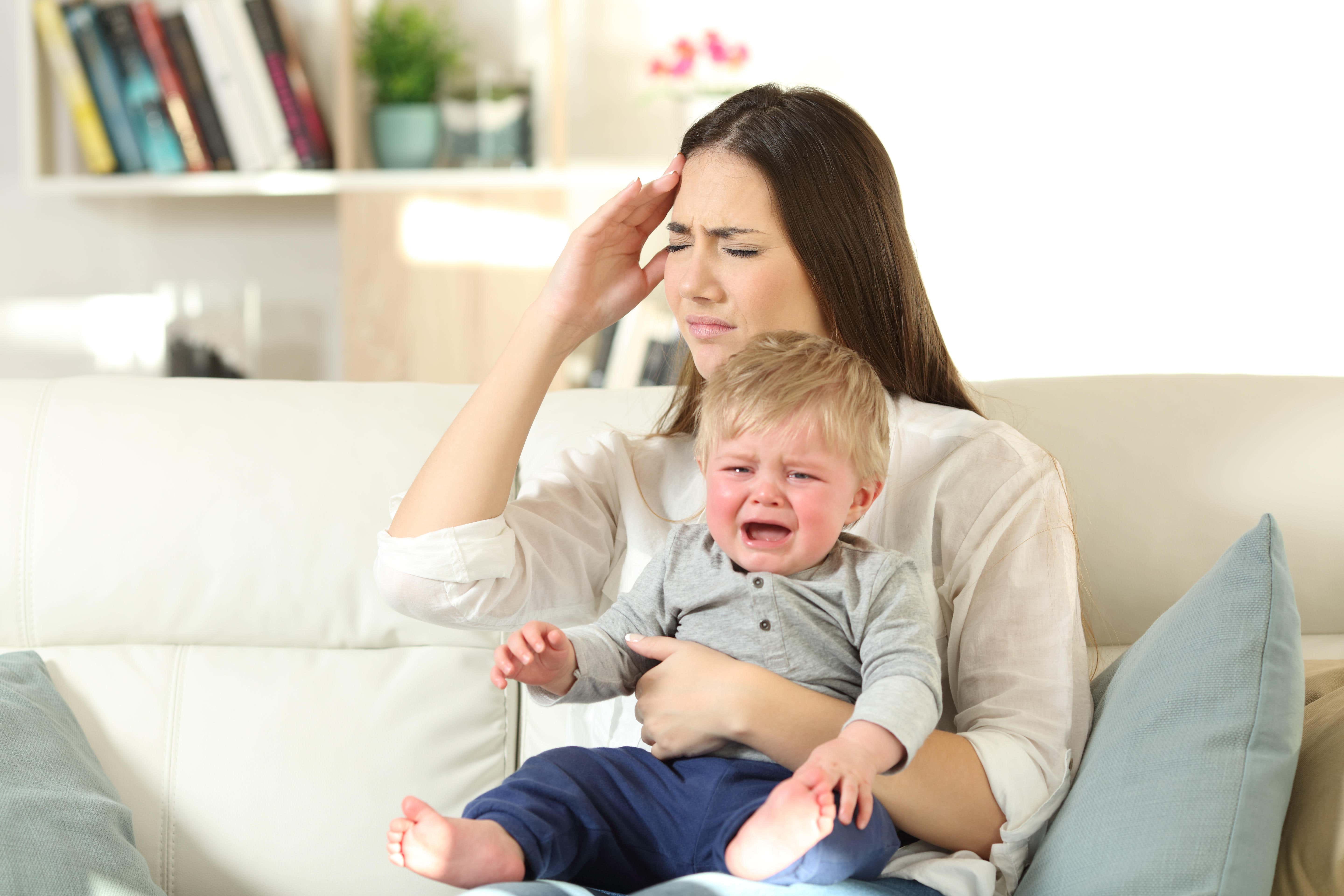Maternal Mental Health Awareness Week: 5 ways to calm new mum anxiety
Experts explain how struggling expectant and new parents can control negative feelings. By Lisa Salmon.

Although having a baby can be the most wonderful thing in the world, it can also be extremely scary, stressful and lonely. And despite the many joys of motherhood, the tough parts can really take their toll on a new mum’s mental health.
As well as pre- and post-natal depression, more than a quarter of pregnant and new mums will develop anxiety at some point during the perinatal period (pregnancy and the year following the birth), and many of these women will go on to suffer from depression if they don’t get the support and treatment they need.
“Anxiety during and after pregnancy is very common, with 25% or more women thought to experience anything from mild and transient anxiety and difficulties adjusting, to more severe problems such as uncontrollable worry, panic or obsessive thoughts,” explains Professor Ian Jones, director of the National Centre for Mental Health, and a trustee of the Maternal Mental Health Alliance.
And speaking to mark Maternal Mental Health Awareness Week (May 1-7), perinatal mental health expert Dani Gillett, training director at the perinatal mental illness support charity the PANDAS Foundation, explains that of the 15% of expectant mums and 10% of new mums who develop anxiety during the perinatal period, “Unfortunately, many will go on to develop depression if left untreated and unsupported.”
Anxiety episodes can be unexpected, she says, or triggered by something that’s caused trauma in the past. “As a new or expectant parent, often the anxiety centres around the baby and their parenting – this can be a fixation on their breathing, routines, feeding, or general health and wellbeing.”
Gillett says friends and family may notice that anxious new mums change routines to avoid certain situations or places, have mood swings, and may not sleep, even when baby is settled or being taken care of. “They may not allow others to hold or take care of the baby, they may isolate themselves, and can often become extremely tearful, or have no emotions at all. Often, they relay feelings of guilt or regularly question their parenting and how the baby’s doing.”
Physical symptoms of anxiety can include rapid breathing or a feeling of not being able to catch your breath, palpitations, and sweaty palms. Anxiety may also lead to mums feeling restless, worrying excessively, feeling permanently on edge, having intrusive thoughts and even feeling rage.
Gillet says: “Intrusive thoughts usually centre around the safety of their little ones, and parents can become obsessed with things that will keep them safe and away from harm; often becoming hypervigilant during daily tasks.”
But there are several ways to deal with such feelings, says Gillett, who suggests…
1. Talk about your feelingsOpening up about how you’re feeling to whoever you are most comfortable with can help make you feel less alone, she says. “Talking to others in similar situations can also be extremely useful, as you’re all on a similar journey and can support each other in a way others may not.”
2. Take yourself to an imaginary beach
Some new mums suffer from panic attacks, which can often be felt before they develop into symptoms, says Gillett, usually starting with a sinking feeling, dizzy/whirring head, or a sudden short sharp breath, and the heart beginning to race. But grounding or mindfulness techniques can reduce or prevent full attacks, she says.
One example of a grounding technique is closing your eyes, focusing on your breathing, and taking yourself to the beach in your mind. “Feel the warm air, feel the sun on your face, feel the sand beneath your feet and feel the tide coming up over your feet and away again,” suggests Gillett. “Breathe to the ebb of the tide, in for two and out for four, and repeat.”
3. Try ‘square breathing’Another technique is ‘square breathing’, says Gillett. Make the shape of a square in the air with your finger and breathe in for the horizontal line and breathe out for the vertical line (in for two and out for four). “This can help to ground you back to the here and now, gently reducing the breathing and rapid heart rate,” she explains.
4. Try CBTGet guidance from someone you’re comfortable with to reach out to a professional to get additional support, suggests Gillett, who advises that talking therapies such as cognitive behavioural therapy (CBT), can be really helpful in reducing anxiety symptoms and triggers.
5. Get expert help
Jones says: “While it’s natural, especially as a new parent, to worry about whether you’re ‘doing it right’, sometimes it can be more serious.
“If something doesn’t feel right, or if your anxiety is difficult to manage, speak to a midwife, health visitor or GP as soon as possible. With the right support, it’s possible to feel better.”
In addition, the PANDAS Foundation provides free support to people concerned about anxiety, or who are struggling generally with mental health issues, through a helpline (0808 1961 776), email and WhatsApp support, and peer-to-peer support groups.
Subscribe to Independent Premium to bookmark this article
Want to bookmark your favourite articles and stories to read or reference later? Start your Independent Premium subscription today.
